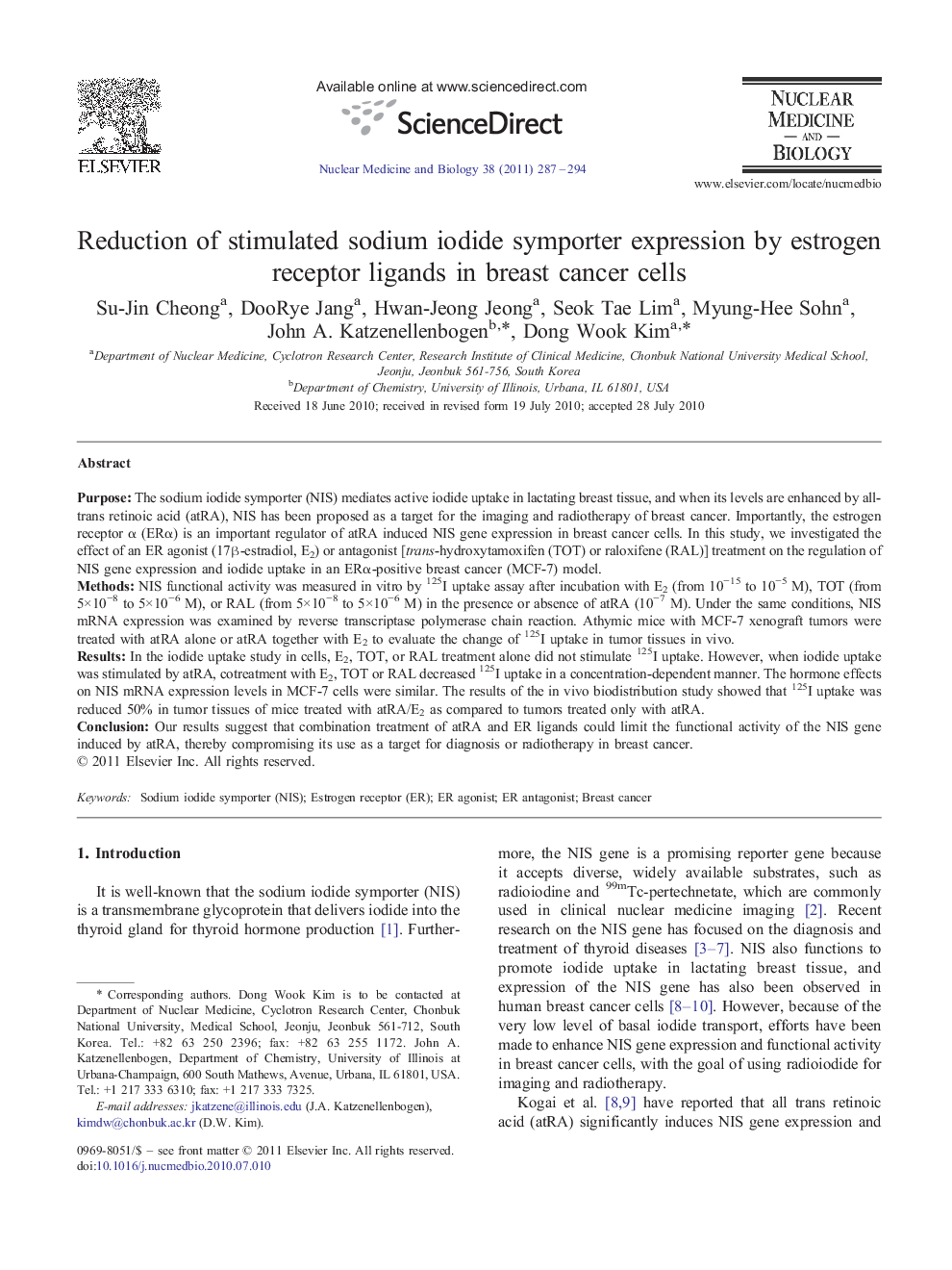| Article ID | Journal | Published Year | Pages | File Type |
|---|---|---|---|---|
| 2153919 | Nuclear Medicine and Biology | 2011 | 8 Pages |
PurposeThe sodium iodide symporter (NIS) mediates active iodide uptake in lactating breast tissue, and when its levels are enhanced by all-trans retinoic acid (atRA), NIS has been proposed as a target for the imaging and radiotherapy of breast cancer. Importantly, the estrogen receptor α (ERα) is an important regulator of atRA induced NIS gene expression in breast cancer cells. In this study, we investigated the effect of an ER agonist (17β-estradiol, E2) or antagonist [trans-hydroxytamoxifen (TOT) or raloxifene (RAL)] treatment on the regulation of NIS gene expression and iodide uptake in an ERα-positive breast cancer (MCF-7) model.MethodsNIS functional activity was measured in vitro by 125I uptake assay after incubation with E2 (from 10−15 to 10−5 M), TOT (from 5×10−8 to 5×10−6 M), or RAL (from 5×10−8 to 5×10−6 M) in the presence or absence of atRA (10−7 M). Under the same conditions, NIS mRNA expression was examined by reverse transcriptase polymerase chain reaction. Athymic mice with MCF-7 xenograft tumors were treated with atRA alone or atRA together with E2 to evaluate the change of 125I uptake in tumor tissues in vivo.ResultsIn the iodide uptake study in cells, E2, TOT, or RAL treatment alone did not stimulate 125I uptake. However, when iodide uptake was stimulated by atRA, cotreatment with E2, TOT or RAL decreased 125I uptake in a concentration-dependent manner. The hormone effects on NIS mRNA expression levels in MCF-7 cells were similar. The results of the in vivo biodistribution study showed that 125I uptake was reduced 50% in tumor tissues of mice treated with atRA/E2 as compared to tumors treated only with atRA.ConclusionOur results suggest that combination treatment of atRA and ER ligands could limit the functional activity of the NIS gene induced by atRA, thereby compromising its use as a target for diagnosis or radiotherapy in breast cancer.
